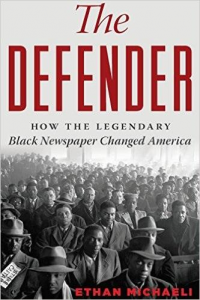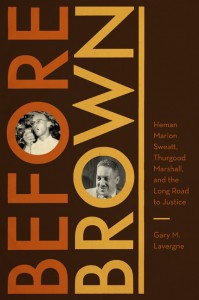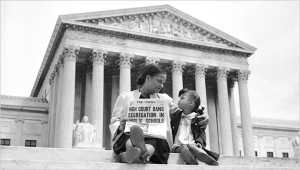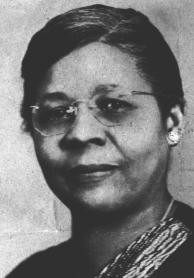PVAMU architecture students earn grand prize in 2016 U.S. Department of Energy “Race to Zero” Design Competition
A team of five PVAMU School of Architecture students captured the grand prize at the recent 2016 Race to Zero Design Competition in Golden, Colorado. The event, sponsored by the U.S. Department of Energy, had 31 teams from 25 colleges competing to design cost-effective, zero energy homes for mainstream builders.
The team included: Yasmine Parker, Alexis M. Borman, Christopher Brown, Sean Benson, and Devonta Montrell Magee. Professor Shelly Pottorf was faculty advisor for the team which was also awarded first place in the Urban Single-Family Housing Contest. Among the other schools competing were: Carnegie Mellon University, The Pennsylvania State University, and the University of Southern California.
The Race to Zero encourages students to work with builders, developers, community leaders, and other industry partners to meet stringent design requirements and create marketable, affordable concepts. The event took place on April 16-17 at the National Renewable Energy Laboratory.
The intention to inspire next-generation architects, engineers, and construction managers to apply the latest building science innovations in new and existing homes. The awards recognize students who excel at integrating solid building science principles into designs for zero energy ready homes including creative solutions to real-world problems. (more)
Fears for Future of North Carolina Black Colleges, severe tuition cuts and possible name changes
 From Inside Higher Ed: “A North Carolina bill that would slash tuition at five state universities is drawing fire from critics who fear it heavily targets historically black institutions’ finances and identities.
From Inside Higher Ed: “A North Carolina bill that would slash tuition at five state universities is drawing fire from critics who fear it heavily targets historically black institutions’ finances and identities.
“The stated intention of the bill, Senate Bill 873, is to make public education more affordable in North Carolina, a state that has in recent years squeezed budgets at its well-known university system and moved to emphasize community college as a way to cut costs. But while portions of the bill would affect all of the state’s public universities, it’s generating significant controversy for measures directly aimed at Elizabeth City State University, Fayetteville State University, the University of North Carolina at Pembroke, Winston-Salem State University and Western Carolina University.
“Three of the named universities, Elizabeth City State, Fayetteville State and Winston-Salem State, are historically black colleges and universities. The fourth, UNC Pembroke, was founded in the late 1800s to train American Indian teachers and today enrolls a large number of African-American and American Indian students.
“One measure would require the schools to slash tuition in 2018, down to $500 a semester for in-state students and $2,500 for out-of-state students. Other parts of the bill would explore recommending name changes for institutions if it’s determined new names would improve application numbers, academic strength and student diversity.
“At worst, critics of the bill see it as a thinly veiled attempt to whitewash the state’s lower-performing historically black universities — a continuation of a widespread trend of targeting institutions founded to teach black students in a time of legally enforced education segregation. (more)
Opinion: “Obliterating UNC’s black history,” , Yale University history professor
Literary: “The Defender, How the Legendary Black Newspaper Changed America”
 Giving voice to the voiceless, the Chicago Defender condemned Jim Crow, catalyzed the Great Migration, and focused the electoral power of black America. Robert S. Abbott founded The Defender in 1905, smuggled hundreds of thousands of copies into the most isolated communities in the segregated South, and was dubbed a “Modern Moses,” becoming one of the first black millionaires in the process. His successor wielded the newspaper’s clout to elect mayors and presidents, including Harry S. Truman and John F. Kennedy, who would have lost in 1960 if not for TheDefender’s support. Along the way, its pages were filled with columns by legends like Ida B. Wells, Langston Hughes, and Martin Luther King.
Giving voice to the voiceless, the Chicago Defender condemned Jim Crow, catalyzed the Great Migration, and focused the electoral power of black America. Robert S. Abbott founded The Defender in 1905, smuggled hundreds of thousands of copies into the most isolated communities in the segregated South, and was dubbed a “Modern Moses,” becoming one of the first black millionaires in the process. His successor wielded the newspaper’s clout to elect mayors and presidents, including Harry S. Truman and John F. Kennedy, who would have lost in 1960 if not for TheDefender’s support. Along the way, its pages were filled with columns by legends like Ida B. Wells, Langston Hughes, and Martin Luther King.
Drawing on dozens of interviews and extensive archival research, author Ethan Michaeli constructs a revelatory narrative of race in America and brings to life the reporters who braved lynch mobs and policemen’s clubs to do their jobs, from the age of Teddy Roosevelt to the age of Barack Obama.
“An extraordinary history…Deeply researched, elegantly written…a towering achievement that will not be soon forgotten.” —Brent Staples, New York Times Book Review
NPR interview with Ethan Michaeli
May 19-21: Conference to mark the opening of the Smithsonian National Museum of African American History and Culture
 The Future of the African American Past, a landmark conference featuring leading historians bringing fresh insights to long-standing questions about the field of African American history, will be held in Washington, DC, on May 19-21, 2016 to celebrate the opening of the Smithsonian National Museum of African American History and Culture. While attendance capacity has been reached, a waitlist is available. The event will also be streamed online for the public. Click here for program lineup.
The Future of the African American Past, a landmark conference featuring leading historians bringing fresh insights to long-standing questions about the field of African American history, will be held in Washington, DC, on May 19-21, 2016 to celebrate the opening of the Smithsonian National Museum of African American History and Culture. While attendance capacity has been reached, a waitlist is available. The event will also be streamed online for the public. Click here for program lineup.
TIPHC Bookshelf
 Published scholarship on black history in Texas is growing and we’d like to share with you some suggested readings, both current and past, from some of the preeminent history scholars in Texas and beyond. We invite you to take a look at our bookshelf page — including a featured selection — and check back as the list grows. A different selection will be featured each week. We welcome suggestions and reviews. This week, we offer, “Before Brown — Heman Marion Sweatt, Thurgood Marshall, and the Long Road to Justice,” by Gary M. Lavergne.
Published scholarship on black history in Texas is growing and we’d like to share with you some suggested readings, both current and past, from some of the preeminent history scholars in Texas and beyond. We invite you to take a look at our bookshelf page — including a featured selection — and check back as the list grows. A different selection will be featured each week. We welcome suggestions and reviews. This week, we offer, “Before Brown — Heman Marion Sweatt, Thurgood Marshall, and the Long Road to Justice,” by Gary M. Lavergne.
On February 26, 1946, an African American from Houston applied for admission to the University of Texas School of Law. Although he met all of the school’s academic qualifications, Heman Marion Sweatt was denied admission because he was black. He challenged the university’s decision in court, and the resulting case, Sweatt v. Painter, went to the U.S. Supreme Court, which ruled in Sweatt’s favor. The Sweatt case paved the way for the landmark Brown v. Board of Education of Topeka rulings that finally opened the doors to higher education for all African Americans and desegregated public education in the United States.
This Week In Texas Black History, May 15-21, 2016
 15 – On this day in 1969, Dallas Cowboys’ great Emmitt Smith was born in Pensacola, Fla. Smith played collegiately at Florida, where he set 58 school records, then was the Cowboys first round pick (number 17 overall) in the National Football League‘s 1990 draft. He was an eight-time Pro Bowler, a four-time first-team All-Pro and led the league in rushing four times (1991, 1992, 1993, 1995). In 2002, Smith passed Chicago Bears great Walter Payton and became the league’s all-time rushing leader on an 11-yard gain in the fourth quarter of the Cowboys’ 17-14 loss to the Seattle Seahawks. Smith retired two years later with 18,355 yards to Payton’s 16,726. He was inducted to the Cowboys’ Ring of Honor in 2005 and into the Pro Football Hall of Fame in 2010.
15 – On this day in 1969, Dallas Cowboys’ great Emmitt Smith was born in Pensacola, Fla. Smith played collegiately at Florida, where he set 58 school records, then was the Cowboys first round pick (number 17 overall) in the National Football League‘s 1990 draft. He was an eight-time Pro Bowler, a four-time first-team All-Pro and led the league in rushing four times (1991, 1992, 1993, 1995). In 2002, Smith passed Chicago Bears great Walter Payton and became the league’s all-time rushing leader on an 11-yard gain in the fourth quarter of the Cowboys’ 17-14 loss to the Seattle Seahawks. Smith retired two years later with 18,355 yards to Payton’s 16,726. He was inducted to the Cowboys’ Ring of Honor in 2005 and into the Pro Football Hall of Fame in 2010.
 17 — The U.S. Supreme Court, on this day in 1954, handed down its landmark decision in Brown v. Board of Education declaring segregation in public schools to be unconstitutional. The court had consolidated five cases dealing with racial segregation in public schools (in Kansas, Delaware, the District of Columbia, South Carolina, and Virginia) under one name, Oliver Brown et al. v. the Board of Education of Topeka. Oliver Brown brought the case against the Topeka, Kan. Board of Education because his daughter, Linda, in third grade, had to cross railroad tracks and ride a school bus 21 blocks to a black school, even though there was a white school only five blocks away from her home. The court ruled unanimously that “separate educational facilities are inherently unequal.” The 1946 Heman Sweatt case against the University of Texas School of Law was a precedent for the ruling.
17 — The U.S. Supreme Court, on this day in 1954, handed down its landmark decision in Brown v. Board of Education declaring segregation in public schools to be unconstitutional. The court had consolidated five cases dealing with racial segregation in public schools (in Kansas, Delaware, the District of Columbia, South Carolina, and Virginia) under one name, Oliver Brown et al. v. the Board of Education of Topeka. Oliver Brown brought the case against the Topeka, Kan. Board of Education because his daughter, Linda, in third grade, had to cross railroad tracks and ride a school bus 21 blocks to a black school, even though there was a white school only five blocks away from her home. The court ruled unanimously that “separate educational facilities are inherently unequal.” The 1946 Heman Sweatt case against the University of Texas School of Law was a precedent for the ruling.
 20 – On this day in 1881, Mary Elizabeth Branch was born to a family of former slaves near Farmville, Virginia. Branch received a bachelor’s degree in 1922 and a master’s degree in English in 1925, both from the University of Chicago. In 1930, the American Missionary Association appointed her president of Tillotson College in Austin, making her the first woman to head an accredited college in Texas. Under her direction the college’s facilities were improved, the library’s holdings were expanded, and the faculty size doubled. She also permitted the organization of fraternities and sororities, and encouraged the formation of academic and athletic clubs. In 1944, Branch helped to establish the United Negro College Fund.
20 – On this day in 1881, Mary Elizabeth Branch was born to a family of former slaves near Farmville, Virginia. Branch received a bachelor’s degree in 1922 and a master’s degree in English in 1925, both from the University of Chicago. In 1930, the American Missionary Association appointed her president of Tillotson College in Austin, making her the first woman to head an accredited college in Texas. Under her direction the college’s facilities were improved, the library’s holdings were expanded, and the faculty size doubled. She also permitted the organization of fraternities and sororities, and encouraged the formation of academic and athletic clubs. In 1944, Branch helped to establish the United Negro College Fund.
21 – On this day in 2005 Dallas civic leader Samuel William Hudson, Jr. passed away. Hudson was the city’s first African American to serve on a grand jury. As a civil rights activist, his efforts lead to the desegregation of Southern Methodist University’s School of Theology and the admittance of black patients to Methodist Hospital. Hudson graduated from Bishop College and was the father of former State Representative Sam Hudson, III.
Blog: Ron Goodwin, author, PVAMU history professor
Ron Good  win’s bi-weekly blog appears exclusively for TIPHC/TBHPP. Goodwin is a San Antonio native and Air Force veteran. Generally, his column will address contemporary issues in the black community and how they relate to black history. He and the TIPHC/TBHPP staff welcome your comments. His latest blog is, “Democracy and Demagogues.” Read it
win’s bi-weekly blog appears exclusively for TIPHC/TBHPP. Goodwin is a San Antonio native and Air Force veteran. Generally, his column will address contemporary issues in the black community and how they relate to black history. He and the TIPHC/TBHPP staff welcome your comments. His latest blog is, “Democracy and Demagogues.” Read it
Submissions Wanted
Historians, scholars, students, lend us your…writings. Help us produce the most comprehensive documentation ever undertaken for the African American experience in Texas. We encourage you to contribute items about people, places, events, issues, politics/legislation, sports, entertainment, religion, etc., as general entries or essays. Our documentation is wide-ranging and diverse, and you may research and write about the subject of your interest or, to start, please consult our list of suggested biographical entries and see submission guidelines. However, all topics must be approved by TIPHC/TBHPP editors before beginning your research/writing.
We welcome your questions or comments via email or telephone – mdhurd@pvamu.edu.
